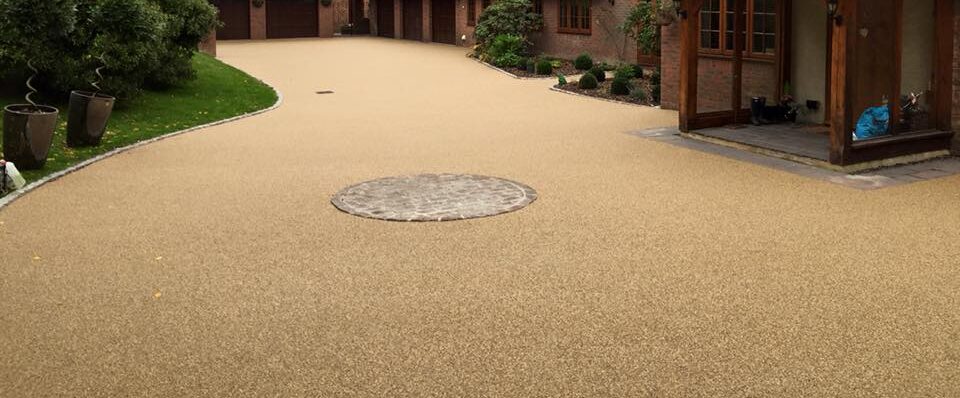
Is Your Warehouse Flooring Built to Handle Extreme Heat and Cold?
If you manage a warehouse, distribution centre or cold store, your floor moves as temperatures...
Read More
We’ve talked to countless homeowners who spend their weekends pulling weeds from between block paving or constantly sweeping up loose gravel. We recently spoke with a homeowner in Surrey who was fed up with their old, crumbling tarmac driveway. They made the switch to resin bound stone and a year later, they told us it was the ‘best investment we’ve ever made in the house.’ This is just one example of how a resin bound driveway can completely transform a home and solve common issues with older surfaces.
The appeal of a high-performance surface extends from the inside of your home to the outside. The same qualities that make resin so durable in other applications are the same ones that make a resin bound driveway work so well for your property’s exterior.
This is the most common question we get from homeowners. While the initial cost of a resin bound driveway can be slightly higher than budget options like gravel or tarmac, it’s a long-term investment that saves you money. For an average UK driveway, block paving can cost between £80 and £130 per m², while a high-quality resin surface starts at around £50 per m².
The key difference is the ongoing maintenance cost. Gravel needs constant raking, weeding, and topping up. Block paving shifts, and the gaps invite weeds and moss. A resin bound driveway stays put, remains weed-free, and requires minimal upkeep for a finish that lasts over 20 years.
The UK government’s Sustainable Urban Drainage Systems (SuDS) regulations are a major factor for new driveways. These rules aim to manage surface water runoff and prevent local flooding. If you install a traditional, impermeable driveway (like concrete or tarmac), you’ll often need to install a separate drainage system or apply for planning permission, which can add significant cost and complexity.
A resin bound driveway is naturally SuDS-compliant. Its permeable, open-pore structure acts like a giant sponge, allowing rainwater to drain directly through the surface, into the sub-base, and naturally soak away into the ground. This feature prevents puddles from forming on your driveway. It also saves you the hassle and expense of complex drainage solutions or planning applications.
While DIY kits exist, we strongly advise against a DIY approach for your driveway. A successful, long-lasting resin bound driveway depends entirely on precise preparation, correct mixing, and expert application. Small mistakes can lead to major problems, and in our experience, the reason most DIY surfaces fail is that people underestimate the importance of the sub-base and the precise resin-to-aggregate ratio. Without the right tools and experience, you can end up with an uneven surface or unsightly trowel marks.
You often wipe out the initial cost you save by doing it yourself with the expense of having to repair or replace a failed surface just a year or two later. A professional installation ensures you get the durable, flawless finish you paid for and a surface that will truly last for decades.
A new resin bound driveway is one of the easiest surfaces to care for, but a small amount of regular maintenance will keep it looking its best. To keep your driveway looking its best:
Ready to get started? With spring and summer approaching, now is the perfect time to get your project planned.
Contact us today at 01622 747909 or sales@flexflooring.co.uk to discuss your plans for a new resin bound driveway. We’ll provide a no-obligation quote and help you choose a durable, beautiful surface that fits your needs.
Experts in epoxy and polyurethane flooring systems

If you manage a warehouse, distribution centre or cold store, your floor moves as temperatures...
Read More